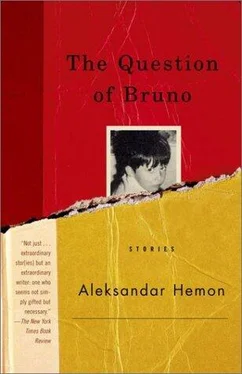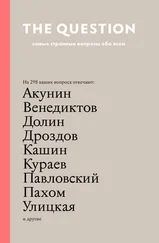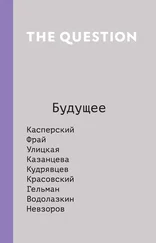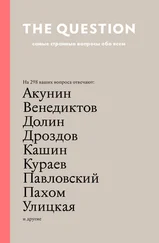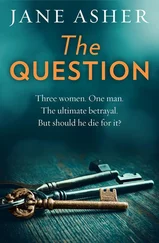20
We’d get to the gravel beach, near the dam dividing the two lakes. I’d have to sit on the prostrate towel for a while before I would be allowed to swim. On the left, there would usually be an old man, his skin puckered here and there, a spy novel over his face, white hair bristling meekly on his chest, his belly ascending and descending nearly imperceptibly, with a large metallic-green fly on the brim of his navel. On our right, two symmetrical old men, with straw hats and baggy trunks, would play chess in serene silence, with their doughy breasts overlooking the board. There would be three children a little farther away. They would sit on their towel, gathered around a woman, probably their mother, who would distribute tomatoes and slices of bread with a layer of sallow spread on them. The children would all simultaneously bite into their slices and their tomatoes, and then chew vigorously. The tomato slime would drip down their chins, they would be seemingly unperturbed, but when they were done eating, the mother would wipe their recalcitrant faces with a stained white rag.
21
Finally, my parents would tell me I could swim and I’d totter over the painful gravel and enter the shallows. I would see throbbing jellyfish floating by. The rocks at the bottom were covered with slimy lichen. I’d hesitantly dive and the shock of coldness would make me feel present in my own body — I’d be aware that my skin was the border between the world and me. Then I’d stand up, the quivering lake up to my nipples, and I’d wave to my parents and they’d shout: “Five more minutes!”
22
Sometimes I’d see fish in pellucid water, gliding along the bottom. Once I saw a school of fish that looked like miniature swordfish, with silver bellies and pointed needle-noses. They were all moving as one and then they stopped before me, and hundreds of little wide-open eyes stared at me in dreadful surprise. Then I blinked and they flitted away.
23
We walked up the path as the sun was setting. Everything attained a brazen shade and, now and then, there would be a thin gilded beam, like a spear, sticking out of the ground. Cicadas were revving and the warmth of the ground enhanced the fragrance of dry pine needles on the path. I entered the stretch of the path that had been in the shadow of the tall pines for a while, and the sudden coolness made me conscious of how hot my shoulders felt. I pressed my thumb firmly against my shoulder and, when I lifted it, a pallid blot appeared, then it slowly shrank, back into the ruddiness.
24
There was a man holding a German shepherd on a leash, much of which was coiled around his hand. The shepherd was attempting to jump at a mongoose backed against a short ruin of a stone wall. As the dog’s jaw snapped a breath away from the mongoose’s snout, the man pulled the dog back. The mongoose’s hair bristled up, and it grinned to show its teeth, appearing dangerous, but I knew it was just madly scared. The eyes had a red glow, akin to the glow that people who glanced at the flashbulb have on bad color photos. The dog was growling and barking and I saw the pink-and-brown gums and the bloodthirsty saliva running down the sides of the jaw. Then the man let the dog go and there was, for just a moment, hissing and wheezing, growling and shrieking. The man yanked the dog back and the mongoose lay on its back, showing its teeth in a useless scowl, the paws spread, as if showing it was harmless now, and the eyes were wide open, the irises stretched to the edge of the pupils, flabbergasted. There was a hole in its chest — the dog seemed to have bitten off a part of it — and I saw the heart, like a tiny tomato, pulsating, as if hiccuping, slower and slower, with slightly longer moments between the throbs, and it simply stopped.
25
As we walked through the dusk, my sandals would fill with pine needles and I would have to stop to take them out. Thousands of fireflies floated in the shrubs, lighting and vanishing, as if they were hidden fairy-photographers with flashbulbs, taking our snapshots. “Are you hungry?” my mother asked.
26
We would sit under the cloak of vines, with a rotund jar of limpid honey and a plate of pickles. Uncle Julius would dip a pickle into the honey and several bees would peel themselves off the jar and hover above the table. I would dip my finger and try to get it to my lips before the thinning thread of honey dripped on my naked thighs, but I would never make it.
Sometimes, around lunch time, Uncle Julius would take me to his apiary. He would put on a white overall and a white hat with a veil falling down on his chest, so he looked like a bride. He would light a torn rag and order me to hold it, so as to repel the bees. He would tell me to be absolutely silent and not to move and not to blink. I’d peek from behind his back, my hand with the smoldering rag stretching out. He would take the lid off a beehive, carefully, as if he were afraid of awakening the island, and the buzz would rise like a cloud of dust and linger around us. He would scrape off the wax between the frames and then take them out, one by one, and show them to me. I’d see the molasses of bees fidgeting. “They work all the time,” he’d whisper. “They never stop.” I’d be frightened by the possibility of being stung, even though he told me that the bees would not attack me if I pretended not to exist. The fear would swell, and the more I’d think about it, the more unbearable the unease would be. Eventually, I’d break down and run back to the house, get on the stairs, from where I’d see him, remote, immobile — apart from the slow, wise motions of his apt hands. I’d watch him, as if he were projected on a screen of olive trees and aisles of beehives, then he’d turn to me and I could discern a peculiar, tranquil smile behind the veil.
27
Mother and Father were sitting at the stern, with their feet in tepid bilge water, Uncle Julius was rowing, and I was sitting at the prow, my feet dangling overboard. The surface of the lake would ascend with an inconspicuous wave and my feet would delve into the coolness of menthol-green water. With the adaggio of oars, creaking and splashing, we glissaded toward the lake island. There was a dun stone building, with small drawn-in windows, and an array of crooked olive trees in front of it. Uncle Julius steered the scow toward a short desolate pier. I slipped stepping out, but Uncle Julius grabbed my hand and I hung for a moment over the throbbing lake with a sodden loaf of bread and an ardently smiling woman on a magazine page, stuck to the surface like an ice floe.
28
“These lakes,” Uncle Julius said, “used to be a pirate haven in the sixteenth century. They’d hoard the loot and bring hostages here and kill them and torture them — in this very building — if they didn’t get the ransom. They say that this place is still haunted by the ghosts of three children they hung on meat hooks because their parents didn’t pay the ransom. Then this was a nunnery and some people used to believe that even the nuns were not nuns but witches. Then it was a German prison. And now, mind you, it’s a hotel, but there are hardly any tourists ever.”
29
We walked into the sonorous chill of a large stone-walled hall. There was a reception desk, but nobody behind it, and a smiling Tito-picture over the numbered cubbyhole shelf. Then we walked through a long tunnel and then through a low door, so everyone but me had to bow their heads, then we were in a cubicle-like windowless room (“This used to be a nun cell,” Uncle Julius whispered), then we entered the eatery (they had to bend their knees and bow their heads, as if genuflecting, again) with long wooden tables and, on them, two parallel rows of plates and utensils. We sat there waiting for the waiter. There was a Popsicle-yellow lizard, as big as a new pencil, on the stone wall behind Uncle Julius’s back. It looked at us with an unblinking marble eye, apparently perplexed, and then it scurried upward, toward an obscure window.
Читать дальше
